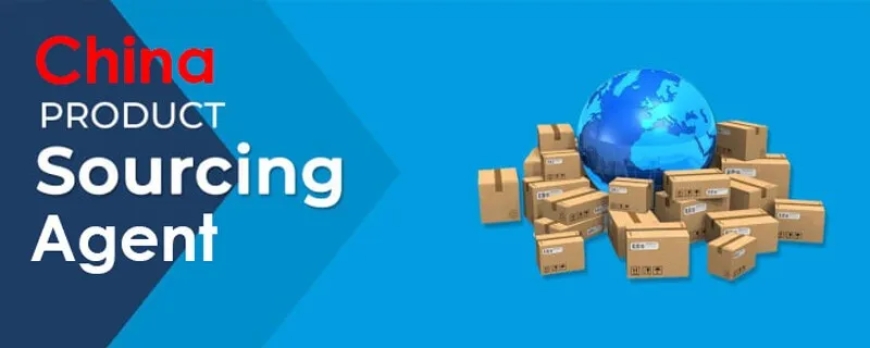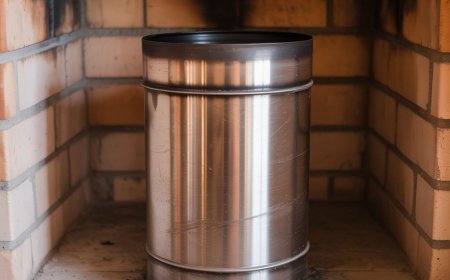What Does a China Sourcing Agent Really Do?
Businesses around the world are increasingly turning to China to source a wide variety of products. From electronics and textiles to furniture and industrial equipment.

Businesses around the world are increasingly turning to China to source a wide variety of products. From electronics and textiles to furniture and industrial equipment, Chinese manufacturers offer competitive pricing and production capabilities that are hard to match. However, navigating the Chinese manufacturing landscape can be complex and overwhelming, especially for small to mid-sized businesses without a local presence. This is where a China sourcing agent comes into play.
But what does a China sourcing agent really do? Are they just middlemen, or do they offer more strategic value? Lets delve into the roles, responsibilities, and advantages of working with a sourcing agent in China.
Understanding the Role of a China Sourcing Agent
At the most basic level, a China sourcing agent is a professional or agency that helps businesses find and purchase goods from Chinese manufacturers. However, their role often goes far beyond simply locating suppliers. A good sourcing agent acts as your trusted partner on the groundmanaging everything from supplier verification and negotiations to quality control and logistics.
Heres a closer look at the core services typically offered by a sourcing agent:
1. Supplier Identification and Verification
One of the most valuable services a sourcing agent provides is helping you find the right suppliers. This means more than just running a search on Alibaba or Made-in-China.com. Experienced sourcing agents have deep networks of trusted suppliers and manufacturers, often developed over years of relationships.
They evaluate suppliers based on various factors, including:
Product quality
Factory capacity
Reputation and reliability
Compliance with international standards
Communication skills and responsiveness
More importantly, they conduct on-site factory audits and background checks to verify the legitimacy and capabilities of the supplier, helping you avoid scams or unqualified manufacturers.
2. Price Negotiation
Once a suitable supplier is identified, the sourcing agent handles the negotiation process. Their familiarity with local market pricing and business culture gives them a significant advantage in negotiating better deals than foreign buyers could achieve on their own.
Key elements they negotiate include:
Unit pricing
Minimum order quantities (MOQs)
Payment terms
Lead times
Packaging options
The goal is to ensure youre getting not just the lowest price, but the best value for your money.
3. Sample Coordination and Product Development
Before committing to a bulk order, it's standard to request product samples. Sourcing agents coordinate this process by:
Requesting and consolidating samples from multiple factories
Testing or inspecting the samples for quality and accuracy
Communicating feedback or revision requests to the factory
For custom-designed products or private label items, sourcing agents also help manage the product development process. This includes everything from design tweaks to prototype creation and tooling coordination.
4. Quality Control and Inspection
Quality assurance is one of the most critical aspects of international sourcing. A reputable sourcing agent will implement a rigorous quality control process to ensure that the final product matches the agreed specifications.
This might include:
Pre-production sample approval
On-site production inspections
Final random inspection (FRI) before shipment
Reporting with detailed photos, videos, and analysis
These inspections reduce the risk of receiving defective or substandard products, which can lead to costly returns and damage to your brand reputation.
5. Logistics and Shipping Coordination
Sourcing agents often assist with the complex logistics of shipping products from China to your country. Their support can include:
Organizing freight forwarding services (air, sea, rail)
Coordinating customs documentation
Managing export licenses
Advising on import taxes and duties
Ensuring compliance with destination country regulations
Some sourcing agents have relationships with freight companies and can secure better shipping rates, especially for consolidated shipments or less-than-container loads (LCL).
6. Risk Management and Problem Solving
When dealing with overseas suppliers, problems are bound to arisebe it delays, quality issues, or communication breakdowns. A skilled sourcing agent plays a proactive role in troubleshooting and resolving these problems on your behalf.
Their local presence, fluency in Mandarin, and understanding of cultural nuances allow them to mediate effectively and get things back on track quickly. This is especially important in time-sensitive or high-volume production runs.
7. Ongoing Relationship Management
Sourcing agents arent just there for a one-off transaction. Many build long-term relationships with both the buyer and the suppliers. They monitor supplier performance over time, negotiate better terms as volumes increase, and help manage seasonal reorders or product line expansions.
This ongoing relationship management leads to better pricing, faster turnaround times, and more reliable partnerships in the long run.
Benefits of Hiring a China Sourcing Agent
Hiring a sourcing agent can be a game-changer for businesses that lack the resources, time, or expertise to manage sourcing operations in China independently. Key benefits include:
Time savings: Let the agent handle the legwork while you focus on sales, marketing, and business development.
Cost efficiency: Avoid hidden costs, middlemen markups, and poor supplier choices.
Quality assurance: Minimize product defects and improve customer satisfaction.
Reduced risk: Prevent fraud, non-compliance, and miscommunication.
Better scalability: Easily scale operations as your business grows.
Do You Really Need a Sourcing Agent?
While a sourcing agent offers many advantages, not every business needs one. If you have:
Extensive experience sourcing from China,
Your own quality control team on the ground,
Established supplier relationships,
Or a high-volume operation with dedicated staff,
you may be able to manage sourcing independently or through a sourcing office.
However, for most small and medium-sized enterprises (SMEs), a sourcing agent adds tremendous value, especially in the early stages of entering the Chinese supply chain.
How to Choose the Right Sourcing Agent
Not all sourcing agents are created equal. When choosing one, consider:
Transparency: Do they disclose supplier info or keep it hidden?
Fee structure: Flat fee, percentage-based, or commission from the factory?
Experience: How long have they been operating in China?
Specialization: Do they focus on your product category or industry?
References: Can they provide client testimonials or case studies?
Avoid agents who are vague about their process, unwilling to share details, or who seem to prioritize their commission over your success.
Conclusion
A China sourcing agent is much more than a go-between. They are your eyes and ears on the ground, your negotiator, your quality inspector, your logistics coordinator, and your problem solverall rolled into one. In a market as complex and dynamic as Chinas, having a reliable sourcing partner can mean the difference between success and costly mistakes.
Whether youre launching a new product, scaling up production, or just exploring the possibilities of importing from China, a sourcing agent can help you navigate the process with greater confidence and fewer headaches.






































